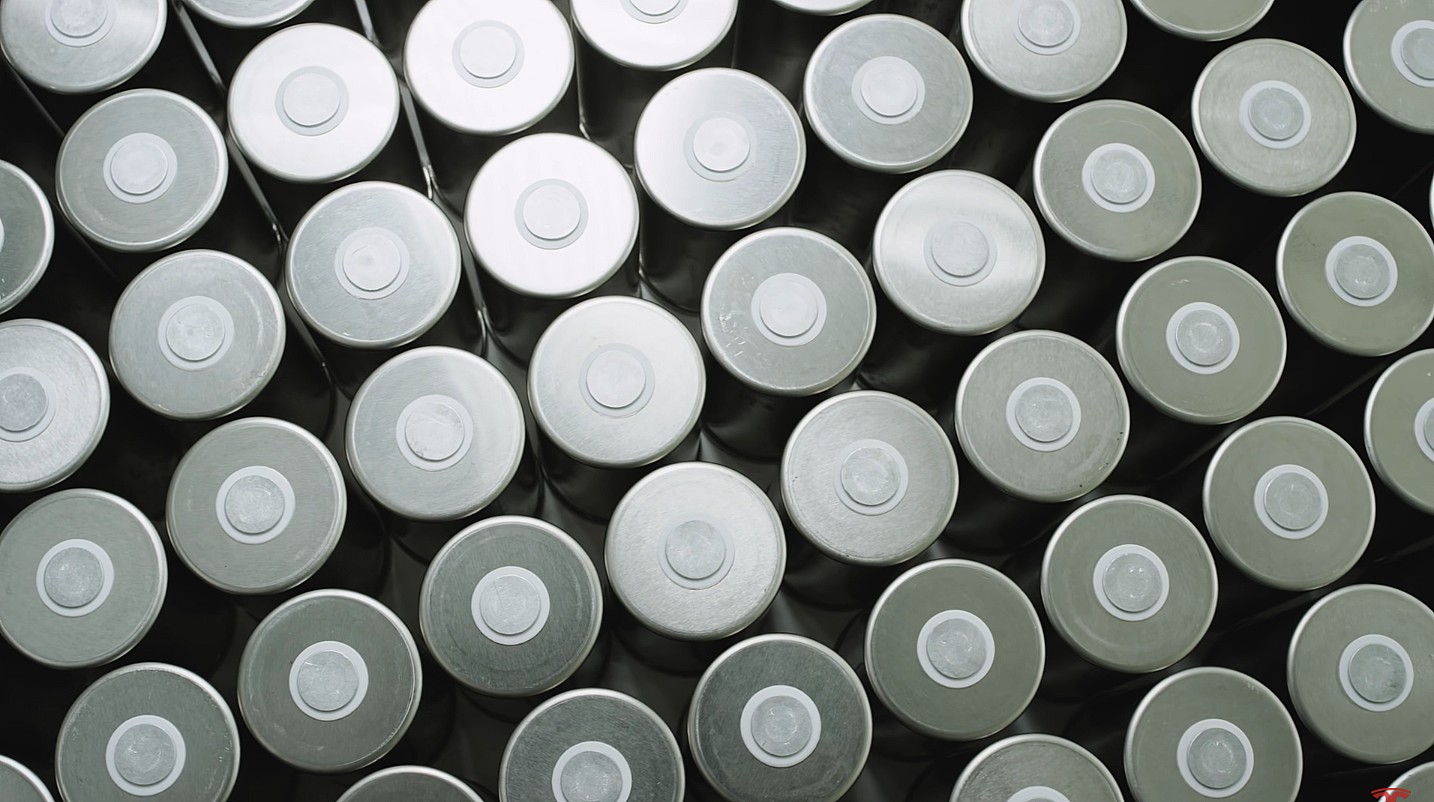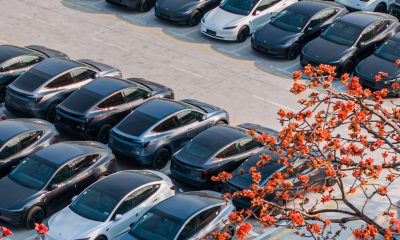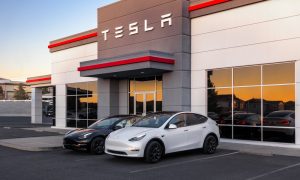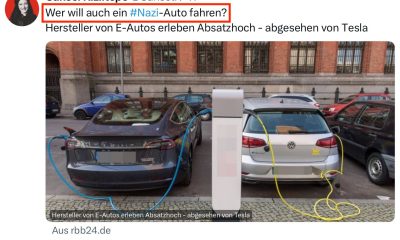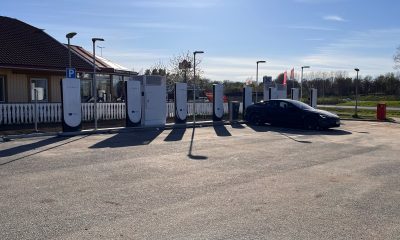A chairman from China-based battery giant Contemporary Amperex Technology Co. Limited (CATL) recently cast doubt on Tesla’s 4680 battery cell, saying that he didn’t think it would be successful in the long run.
In a conversation earlier this year, CATL Chairman Robin Zeng told Elon Musk that the cylindrical 4680 battery “is going to fail and never be successful,” according to a report from Reuters this week. Zeng made the statements to Musk in a meeting with the Tesla CEO on his Beijing visit in April, and the chairman also said that the Tesla CEO was better equipped to handle other technologies than battery cells.
“We had a very big debate, and I showed him,” Zeng said. “He was silent. He doesn’t know how to make a battery. It’s about electrochemistry. He’s good for the chips, the software, the hardware, the mechanical things.”
Tesla working on four dry cathode 4680 battery variants: The Information
Tesla’s 4680 battery cell and CATL licensing
In September, Tesla announced that it had produced its 100 millionth 4680 battery cell at Gigafactory Texas, after reaching 50 million units in June. The company is also in the process of expanding its Gigafactory Nevada to add a dedicated 4680 cell production facility, expected to ramp up to 500 GWh in the long term.
The report also highlights a licensing deal Tesla has with CATL for technology related to producing batteries in Nevada, expected to officially launch in 2025, according to a person with knowledge of the matter who spoke to Reuters under the condition of anonymity.
Zeng on FSD Supervised and Musk’s promise timelines
In addition to discussing battery technology, the chairman said that he and Musk talked about the company’s focus on autonomy, adding that he agrees with Tesla’s overall approach to the topic. Unlike other companies that are developing self-driving systems, Tesla’s Supervised Full Self-Driving (FSD) only utilizes cameras as sensors, rather than using multiple layers of different redundant technologies.
“He’s all in,” Zeng told Reuters regarding Musk and Tesla’s FSD strategy in a statement earlier this month. “I think it’s a good direction.”
Despite his support for the company’s approach to FSD Supervised, Zeng also noted that he thinks Musk tends to set unrealistic timelines for new vehicle technologies, and he even asked the Tesla CEO during the April conversation, saying two-year timelines may as well be “infinity.”
“His problem is overpromising. I talked to him,” the chairman added. “Maybe something needs five years. But he says two years. I definitely asked him why. He told me he wanted to push people.”
Musk has addressed criticisms of his timelines before, pointing to his optimism as a necessary part of his accomplishments.
While certainly not perfect, my batting average for most predictions is quite good.
My schedule optimism, without which I probably wouldn’t even have tried to do many endeavors, gets the best of me sometimes, but I always deliver in the end.— Elon Musk (@elonmusk) December 30, 2023
“Now, admittedly I’m a little optimistic sometimes,” Musk said during this year’s Annual Shareholders Meeting. “You know, I don’t have a complete lack of self awareness. But if I wasn’t optimistic, this wouldn’t exist this factory wouldn’t exist.”
The CEO later went on to add that he believes he’s been “pathologically optimistic from birth.”
CATL hopes for U.S. factory under Trump
CATL also told Reuters that it would build a U.S. production facility if President-elect Donald Trump would allow it.
“Originally, when we wanted to invest in the U.S., the U.S. government said no,” Zeng said. “For me, I’m really open-minded.”
“I do hope that in the future they are open to investments,” the chairman added.
In August, Trump expressed that he would be open to Chinese companies building factories in the U.S., despite the country’s recent passage of a 100-percent tariff on electric vehicle (EV) imports.
“We’re going to give incentives, and if China and other countries want to come here and sell the cars, they’re going to build plants here, and they’re going to hire our workers,” Trump said in a statement to the publication in August.
What are your thoughts? Let me know at zach@teslarati.com, find me on X at @zacharyvisconti, or send us tips at tips@teslarati.com.
CATL’s new LFP cell has 620+ miles of range and ultra-fast charging
Investor's Corner
Tesla Board member and Airbnb co-founder loads up on TSLA ahead of robotaxi launch
Tesla CEO Elon Musk gave a nod of appreciation for the Tesla Board member’s purchase.

Tesla Board member and Airbnb Co-Founder Joe Gebbia has loaded up on TSLA stock (NASDAQ:TSLA). The Board member’s purchase comes just over a month before Tesla is expected to launch an initial robotaxi service in Austin, Texas.
Tesla CEO Elon Musk gave a nod of appreciation for the Tesla Board member in a post on social media.
The TSLA Purchase
As could be seen in a Form 4 submitted to the United States Securities and Exchange Commission (SEC) on Monday, Gebbia purchased about $1.02 million worth of TSLA stock. This was comprised of 4,000 TSLA shares at an average price of $256.308 per share.
Interestingly enough, Gebbia’s purchase represents the first time an insider has purchased TSLA stock in about five years. CEO Elon Musk, in response to a post on social media platform X about the Tesla Board member’s TSLA purchase, gave a nod of appreciation for Gebbia. “Joe rocks,” Musk wrote in his post on X.
Gebbia has served on Tesla’s Board as an independent director since 2022, and he is also a known friend of Elon Musk. He even joined the Trump Administration’s Department of Government Efficiency (DOGE) to help the government optimize its processes.
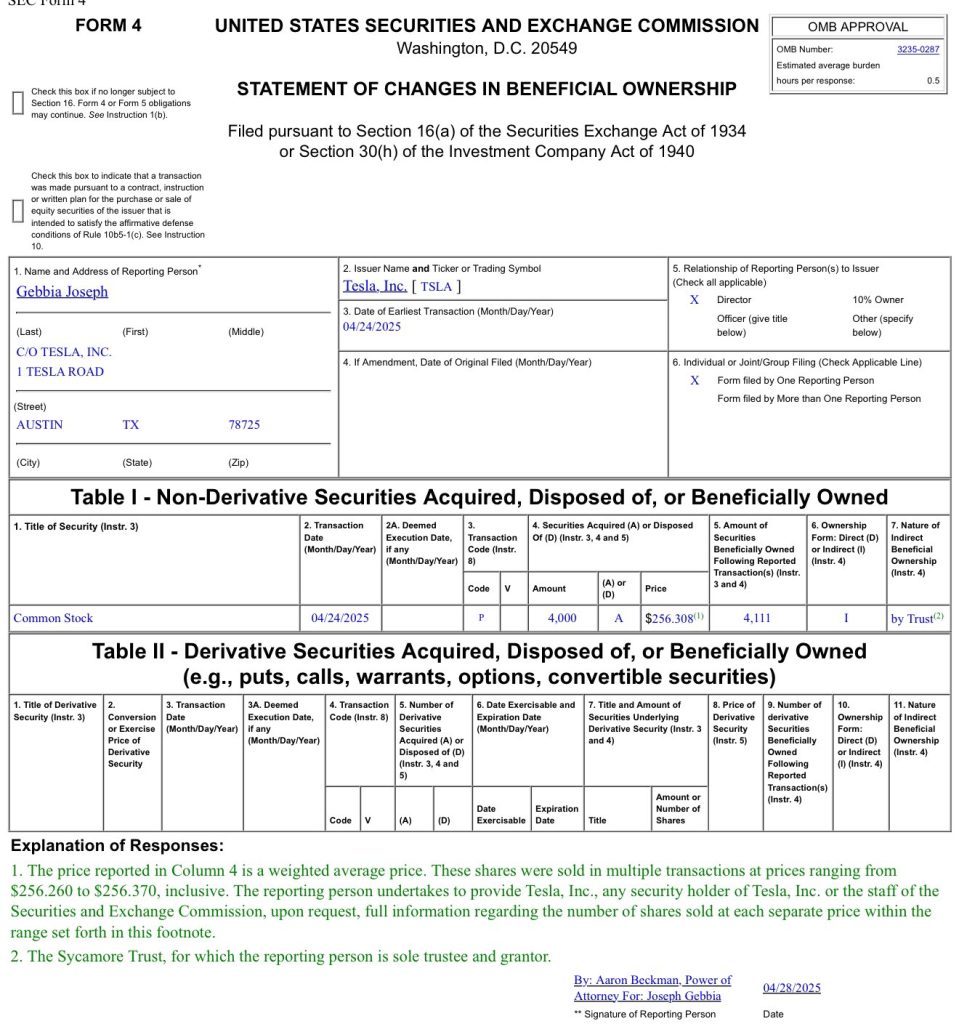
Just a Few Weeks Before Robotaxi
The timing of Gebbia’s TSLA stock purchase is quite interesting as the company is expected to launch a dedicated roboatxi service this June in Austin. A recent report from Insider, citing sources reportedly familiar with the matter, claimed that Tesla currently has 300 test operators driving robotaxis around Austin city streets. The publication’s sources also noted that Tesla has an internal deadline of June 1 for the robotaxi service’s rollout, but even a launch near the end of the month would be impressive.
During the Q1 2025 earnings call, Elon Musk explained that the robotaxi service that would be launched in June will feature autonomous rides in Model Y units. He also noted that the robotaxi service would see an expansion to other cities by the end of 2025. “The Teslas that will be fully autonomous in June in Austin are probably Model Ys. So, that is currently on track to be able to do paid rides fully autonomously in Austin in June and then to be in many other cities in the US by the end of this year,” Musk stated.
News
Stellantis unveils solid-state battery for EVs
Stellantis validated solid state battery cells for EVs: ultra-dense, fast-charging, and AI-optimized. Launching demo fleet by 2026.
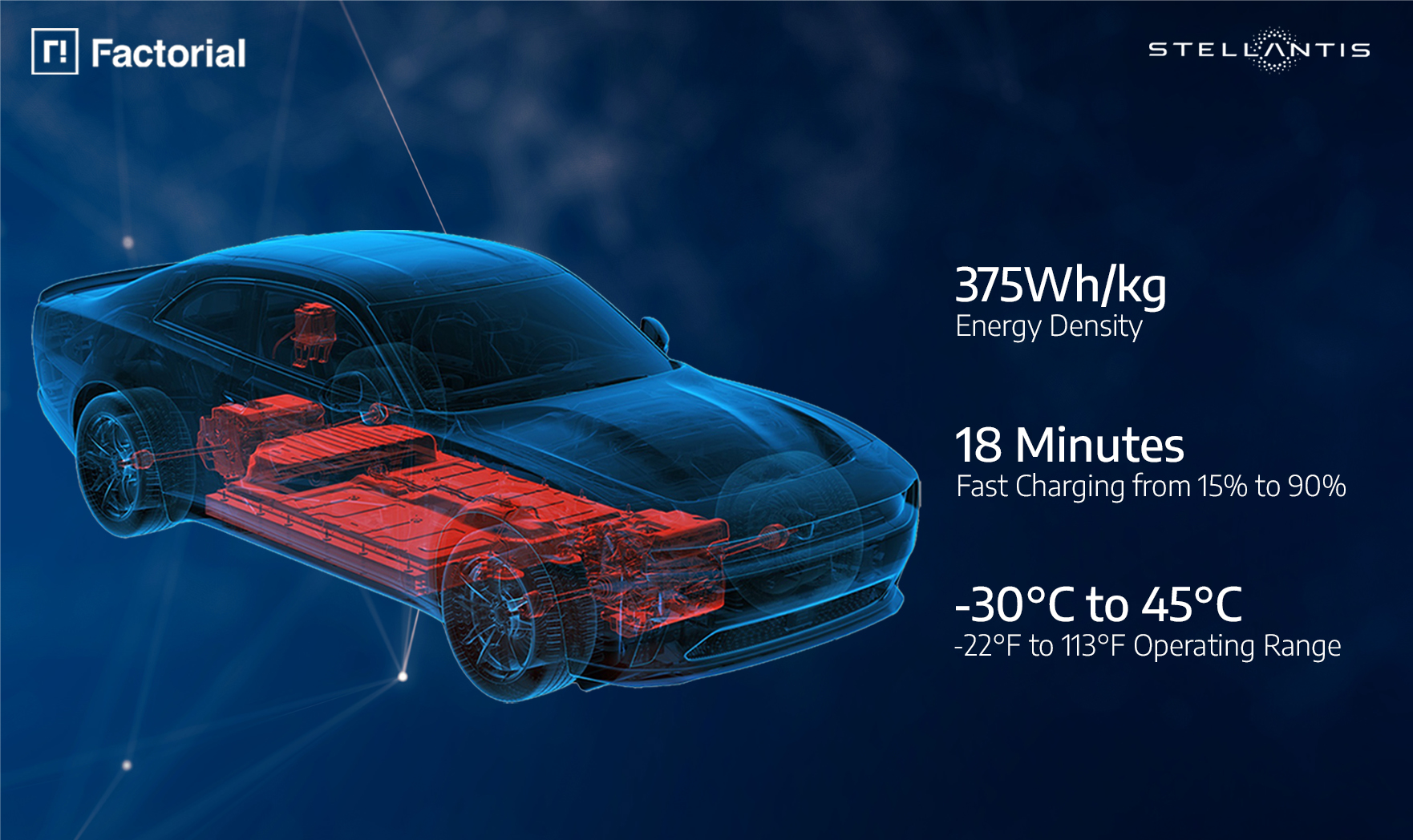
Stellantis N.V. and Factorial Energy have validated Factorial’s automotive-sized FEST® solid-state battery cells, a major milestone for next-generation electric vehicle (EV) batteries. The breakthrough positions Stellantis and Factorial to advance EV performance with lighter, more efficient batteries.
“Reaching this level of performance reflects the strengths of our collaboration with Factorial.
“This breakthrough puts us at the forefront of the solid-state revolution, but we are not stopping there. We continue working together to push the boundaries and deliver even more advanced solutions, bringing us closer to lighter, more efficient batteries that reduce costs for our customers,” said Ned Curic, Stellanti’s Chief Engineering and Technology Officer.
The 77Ah FEST® cells achieved an energy density of 375Wh/kg, supporting over 600 cycles toward automotive qualification. Unlike lithium-ion batteries, these solid-state cells charge from 15% to over 90% in 18 minutes at room temperature and deliver high power with discharge rates up to 4C. Factorial’s AI-driven electrolyte formulation enables performance in temperatures from -30°C to 45°C (-22°F to 113°F), overcoming previous solid-state limitations.
“Battery development is about compromise. While optimizing one feature is simple, balancing high energy density, cycle life, fast charging, and safety in an automotive-sized battery with OEM validation is a breakthrough,” said Siyu Huang, CEO of Factorial Energy. “This achievement with Stellantis is bringing next-generation battery technology from research to reality.”
The collaboration optimizes battery pack design for reduced weight and improved efficiency, enhancing vehicle range and affordability. Stellantis invested $75 million in Factorial in 2021 and plans to integrate these batteries into a demonstration fleet by 2026. This fleet will validate the technology’s real-world performance, a critical step toward commercialization.
The milestone aligns with Stellantis’ push for sustainable EV solutions, leveraging Factorial’s disruptive technology to meet the rising demand for high-performance batteries. As the companies refine pack architecture, the validated cells promise faster charging and greater efficiency, potentially reshaping the EV market. With the demonstration fleet on the horizon, Stellantis and Factorial are poised to lead the solid-state battery push, delivering cost-effective, high-range EVs to consumers.
News
Tesla China vehicle registrations rise 51% in April’s fourth week
In the week ending April 27, Tesla China saw 10,300 new vehicle registrations.
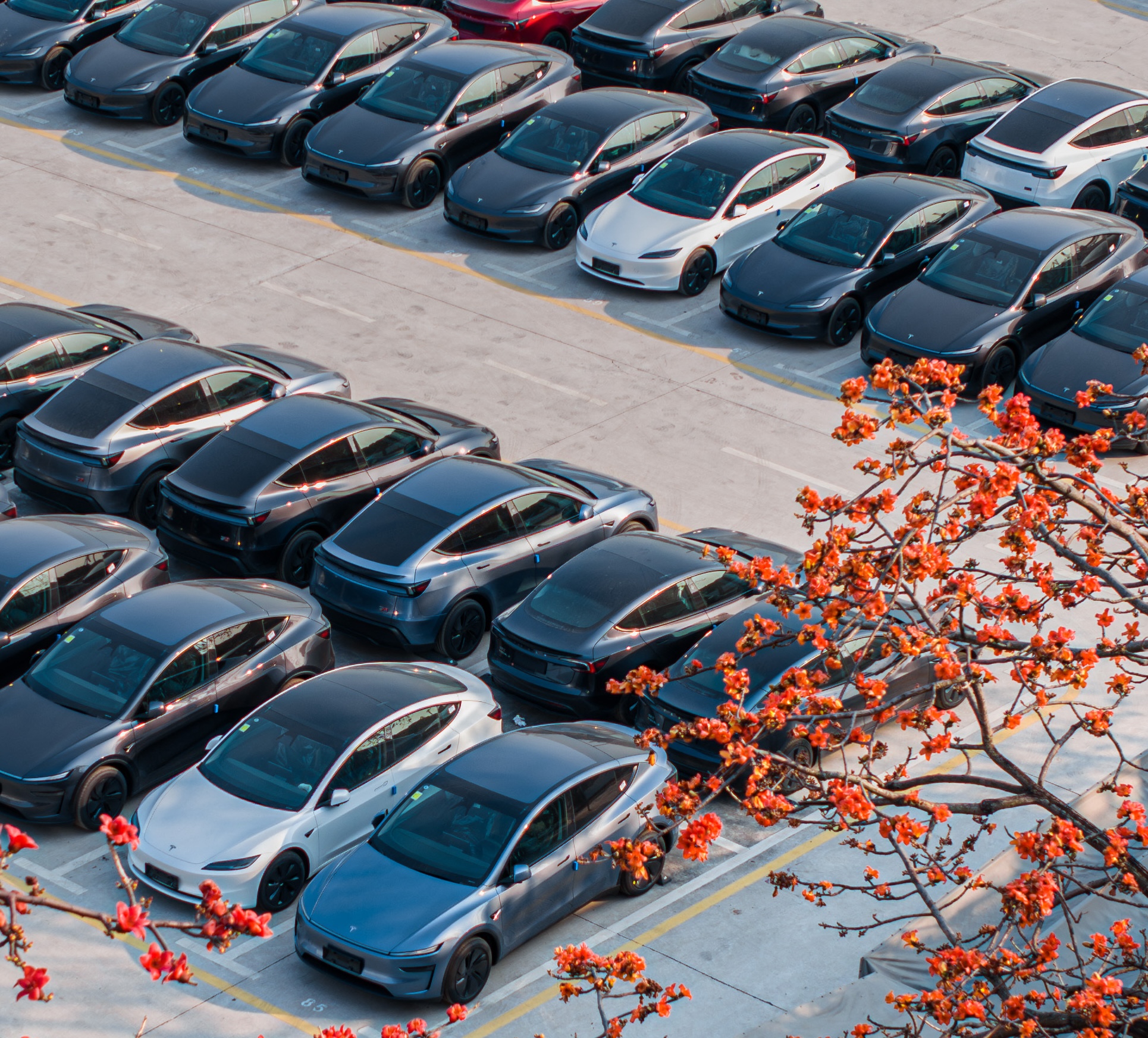
Tesla China’s new vehicle registrations saw a notable rise in the week of April 21-27, 2025. Over the week, the electric vehicle maker’s registrations saw an impressive 51% week-over-week rise, suggesting that domestic vehicle deliveries are on the rise once more.
Tesla China Results
In the week ending April 27, Tesla China saw 10,300 new vehicle registrations. This represents a notable rise from the company’s registration numbers in the past weeks of April. For context, Tesla China saw 3,600 registrations in the week ending April 6, 5,400 registrations in the week ending April 13, and 6,780 registrations in the week ending April 20, 2025.
Considering that April is the first month of the second quarter, expectations were high that Tesla China was allocating Giga Shanghai’s output for vehicle exports. With 10,300 registrations in the week ending April 27, however, it would appear that the company’s domestic deliveries are picking up once more.
Tesla China does not report its weekly sales figures, though a general idea of the company’s overall perforce in the domestic auto sector can be inferred through new vehicle registrations. Fortunately, these registrations are closely tracked by industry watchers, as well as some local automakers like Li Auto.
Tesla Model 3 and Model Y in Focus
Tesla China produces the Model Y and Model 3 in Giga Shanghai. Both vehicles are also exported from China to foreign territories. As per industry watchers, it would appear that both the Model 3 and Model Y saw an increase in registrations in the week ending April 27.
The Model 3, for one, appears to have seen 3,200 registrations in the week ending April 27, a 14% increase from the 2,800 that were registered in the week ending April 20. For context, Tesla China saw just 1,500 new Model 3 registrations in the week ending April 13 and 1,040 registrations in the week ending April 6.
The Model Y, on the other hand, saw 7,100 registrations in the week ending April 27. That’s a 77.5% increase from the 4,000 that were registered in the week ending April 20. Tesla also saw 3,900 registrations in the week ending April 13, and 2,540 registrations in the week ending April 6, 2025.
-
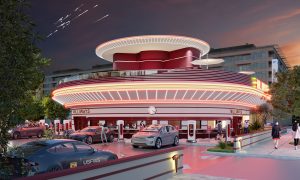
 News1 week ago
News1 week agoTesla’s Hollywood Diner is finally getting close to opening
-
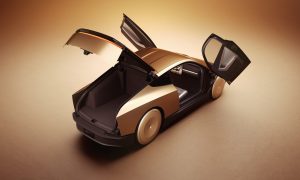
 Elon Musk2 weeks ago
Elon Musk2 weeks agoTesla doubles down on Robotaxi launch date, putting a big bet on its timeline
-
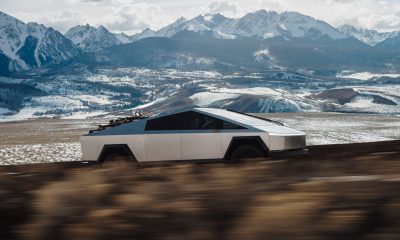
 News4 days ago
News4 days agoTesla is trying to make a statement with its Q2 delivery numbers
-

 News2 weeks ago
News2 weeks agoTesla’s top investor questions ahead of the Q1 2025 earnings call
-

 News2 weeks ago
News2 weeks agoUnderrated Tesla safety feature recognized by China Automotive Research Institute
-
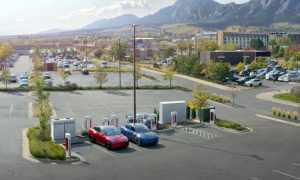
 News2 weeks ago
News2 weeks agoTesla reveals its Q1 Supercharger voting winners, opens next round
-
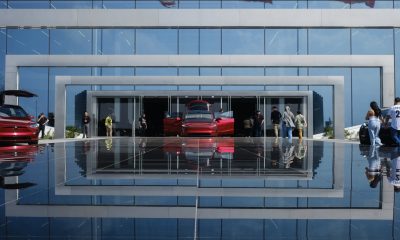
 Investor's Corner7 days ago
Investor's Corner7 days agoLIVE BLOG: Tesla (TSLA) Q1 2025 Company Update and earnings call
-
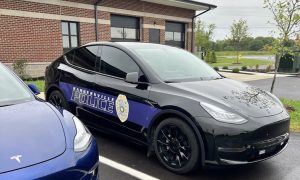
 News2 weeks ago
News2 weeks agoTesla police fleet saves nearly half a million in upkeep and repair costs

